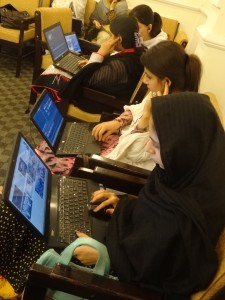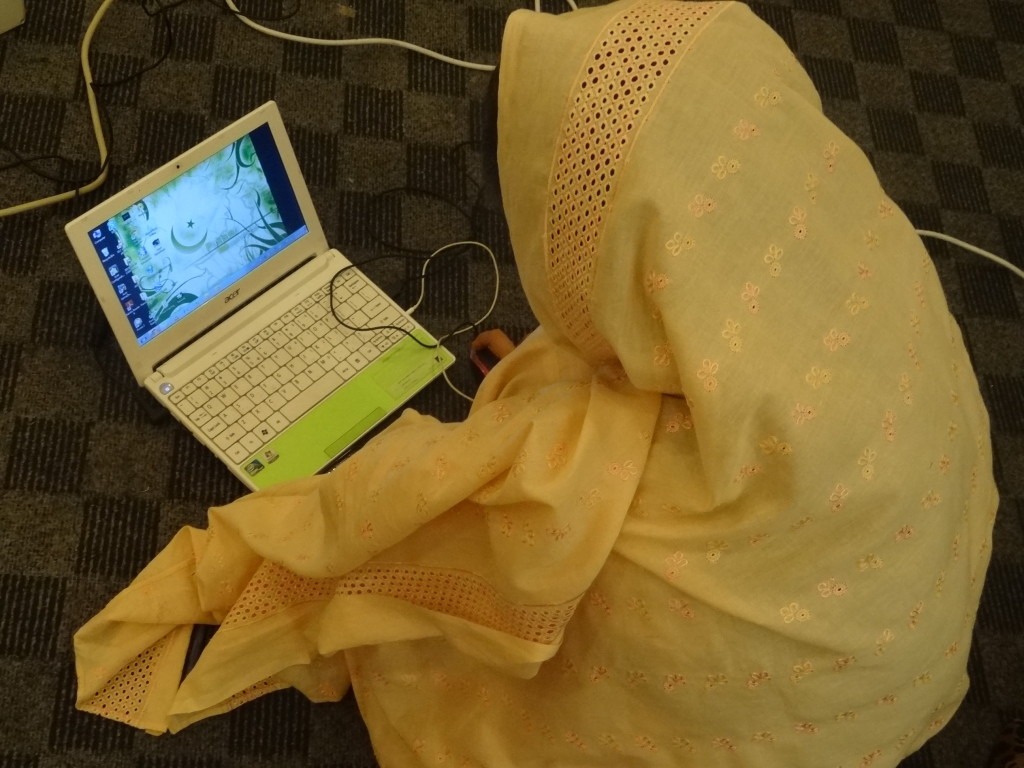October 25, 2013

Freedom House led a delegation of civil society leaders and online activists from around the world to Bali, Indonesia for the 8th Internet Governance Forum (IGF), the UN's flagship conference for discussing global Internet policy. Following the IGF, 17 organizations and individuals signed on to a joint statement to highlight the concerns they raised throughout the Forum, and to offer recommendations to governments, internet companies, and international organizations on how to better protect internet freedoms. This statement was delivered to the Forum during the Open Mic session on the final day by Bouziane Zaid.
We, the undersigned representatives of a group of civil society leaders worldwide who attended and participated in the 2013 Internet Governance Forum (IGF) on October 22-25 in Bali, Indonesia as part of the Freedom House delegation, make this statement at the meeting’s conclusion to highlight a number of opinions we expressed and concerns we raised throughout the Forum.
The 2013 IGF provided a valuable space for the members of our group to engage with other stakeholder groups, through the Forum’s sessions and also through side meetings and consultations with representatives of governments, businesses, the technical community, multilateral bodies, and civil society organizations from all over the world. We urge all stakeholders to continue to engage and participate in future IGFs, to strengthen the Forum’s multistakeholder process, and to uphold the principles of openness, transparency, and inclusiveness. Without the IGF, there is no comparable venue for civil society to directly raise its perspective and concerns with leaders in the government, the private sector, and the technical community.
We share the sentiment with the vast majority of IGF participants that the Internet governance process can and should be improved, but stress the importance of upholding and strengthening the multistakeholder approach to ensure that the internet remains open, global, secure and resilient. In calling for more efforts to promote, protect, and advocate for human rights online, our group has underscored broad principles and recommendations, such as:
1. All laws, policies, regulations, terms of service, user agreements, and other measures to govern the internet must adhere to international standards of human rights, including but not limited to Article 19 of the UN Declaration of Human Rights, guaranteeing the right to freedom of expression; Article 12, guaranteeing the right to privacy; and Article 20, guaranteeing the right to free association. As an important step, states and other stakeholders must look to Human Rights Council Resolution 20/8 – adopted by consensus in July 2012 – affirming “that the same rights that people have offline must also be protected online, in particular freedom of expression,” and pledging to explore further “how the Internet can be an important tool for development and for exercising human rights.” This applies to ending illicit online surveillance by any government. To be legitimate and lawful, any surveillance must be limited, targeted, used to deter or investigate criminalized activity, and subject to independent judicial oversight.
2. Consistency across the many spaces for discussion around Internet governance issues – including those spaces clustered around regional, sub-regional, national, linguistic, and other groupings – is crucial to ensure the principles of openness, transparency, and inclusiveness are upheld in all venues. This is not multistakeholderism for multistakeholderism’s sake, but rather recognizing the need to represent all voices, perspectives and interests in setting standards, norms, and policies that affect the internet, both locally and globally. The term multistakeholder is overused and applied to a wide range of events, groups and processes. Various international organizations, as well as national governments, must make it a top priority to replace lipservice to multistakeholderism with genuine efforts to bring all stakeholders to the table on equal footing.
3. Transparency and accountability are crucial next steps in the internet governance discussion, and need to be fully implemented by all stakeholder groups. Businesses are beginning to recognize transparency reports as serving their users and their corporate social responsibilities, as well as their bottom-line interests. Governments likewise should ensure that their policies and practices are fully transparent as a means of preserving their legitimacy, credibility, and moral authority with their own citizens and the international community. In instances of content censorship, surveillance, shutting down or deliberate slowing down of networks, and other methods of internet control, these two stakeholder groups must work independently and together to divulge details about these measures and have them open to public debate. In addition, governments should institute strict controls on the export of surveillance and filtering technologies to regimes that have failed to demonstrate a commitment to upholding human rights, while the private sector should take a close look at some of their own practices in this domain. In some countries, bloggers, activists, and other internet users are subject to beatings, imprisonment, and even murder when they post information critical of the authorities.
We thank the government of Indonesia for its warm hospitality and dedicated efforts in successfully hosting the 8th annual meeting of the Global IGF. Despite the confusion during the summer over whether the event would be held in Bali, we were able to convene our delegation of civil society advocates, activists and academics from more than 18 countries. However, three of our colleagues had to cancel their attendance owing to visa issues. The letter granting certain registered participants permission to obtain visas upon arrival in Indonesia came too late, was rejected by airline officials, and was not extended to participants from all countries. For future IGFs, it would be preferable to announce the visa on arrival special procedure well in advance and officially notify the appropriate channels.
Thank you.
Signatories:
- Freedom House
- The Unwanted Witness, Uganda
- Jorge Luis Sierra, México
- Damir Gainutdinov, Russian Federation, AGORA Association
- Nighat Dad, Pakistan, Digital Rights Foundation
- Artem Goriainov, Kyrgyzstan, Public Foundation “Civil Initiative on Internet Policy”
- Giang Dang, Vietnam
- Fatima Cambronero, Argentina, AGEIA DENSI Argentina
- Michelle Fong, Hong Kong, Hong Kong In-Media
- Dalia Haj-Omar, Sudan, GIRIFNA
- Bouziane Zaid, Morocco
- Syahredzan Johan, Malaysia
- Juned Sonido, Philippines
- Myanmar ICT for Development Organization (MIDO)
- Cambodian Center for Independent Media (CCIM)
- Mahmood Enayat, United Kingdom, Small Media
- Abeer Alnajjar, Jordan
- Arzu Geybullayeva, Azerbaijan



